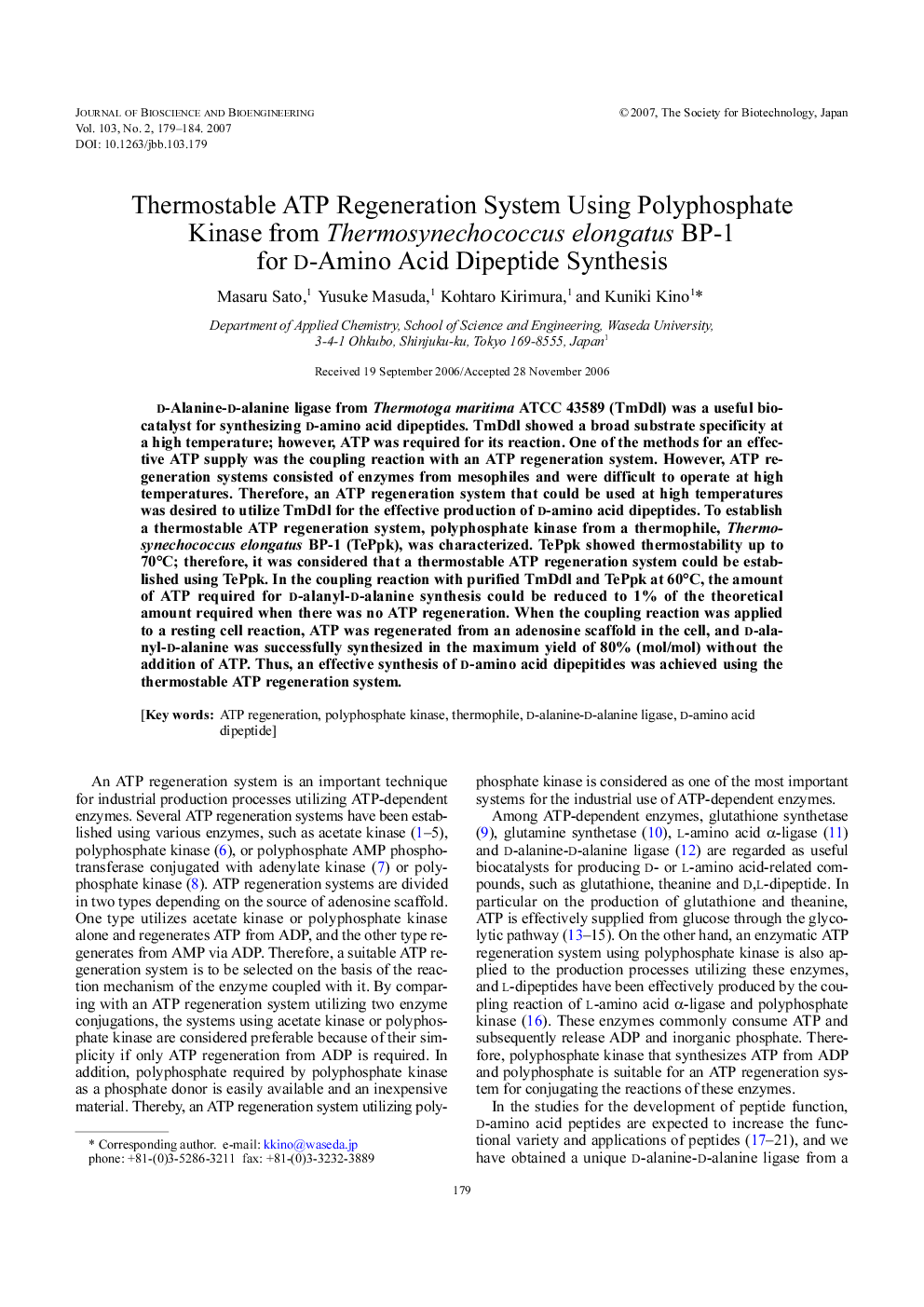| Article ID | Journal | Published Year | Pages | File Type |
|---|---|---|---|---|
| 22335 | Journal of Bioscience and Bioengineering | 2007 | 6 Pages |
d-Alanine-d-alanine ligase from Thermotoga maritima ATCC 43589 (TmDdl) was a useful biocatalyst for synthesizing d-amino acid dipeptides. TmDdl showed a broad substrate specificity at a high temperature; however, ATP was required for its reaction. One of the methods for an effective ATP supply was the coupling reaction with an ATP regeneration system. However, ATP regeneration systems consisted of enzymes from mesophiles and were difficult to operate at high temperatures. Therefore, an ATP regeneration system that could be used at high temperatures was desired to utilize TmDdl for the effective production of d-amino acid dipeptides. To establish a thermostable ATP regeneration system, polyphosphate kinase from a thermophile, Thermosynechococcus elongatus BP-1 (TePpk), was characterized. TePpk showed thermostability up to 70°C; therefore, it was considered that a thermostable ATP regeneration system could be established using TePpk. In the coupling reaction with purified TmDdl and TePpk at 60°C, the amount of ATP required for d-alanyl-d-alanine synthesis could be reduced to 1% of the theoretical amount required when there was no ATP regeneration. When the coupling reaction was applied to a resting cell reaction, ATP was regenerated from an adenosine scaffold in the cell, and d-alanyl-d-alanine was successfully synthesized in the maximum yield of 80% (mol/mol) without the addition of ATP. Thus, an effective synthesis of d-amino acid dipepitides was achieved using the thermostable ATP regeneration system.
